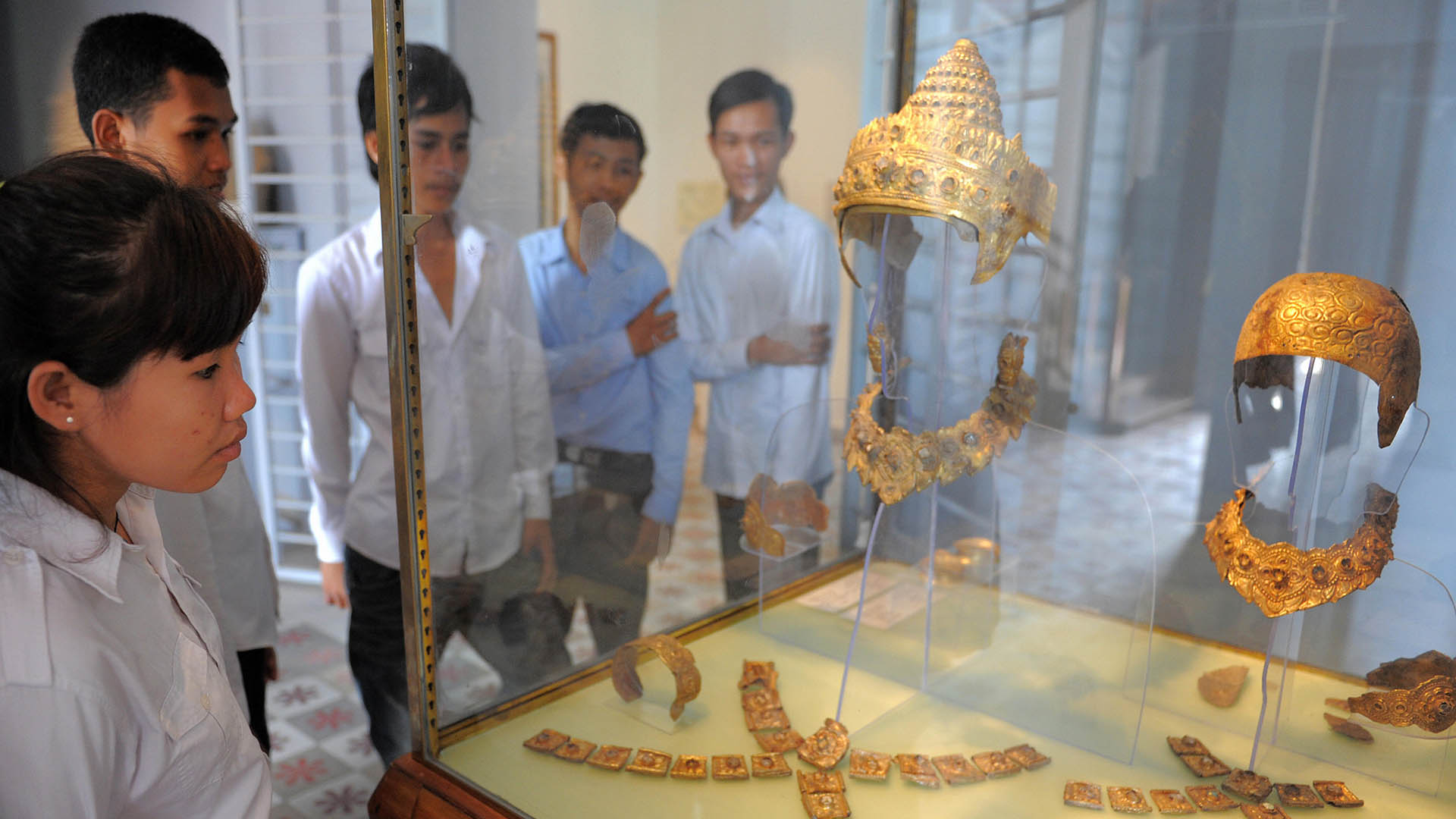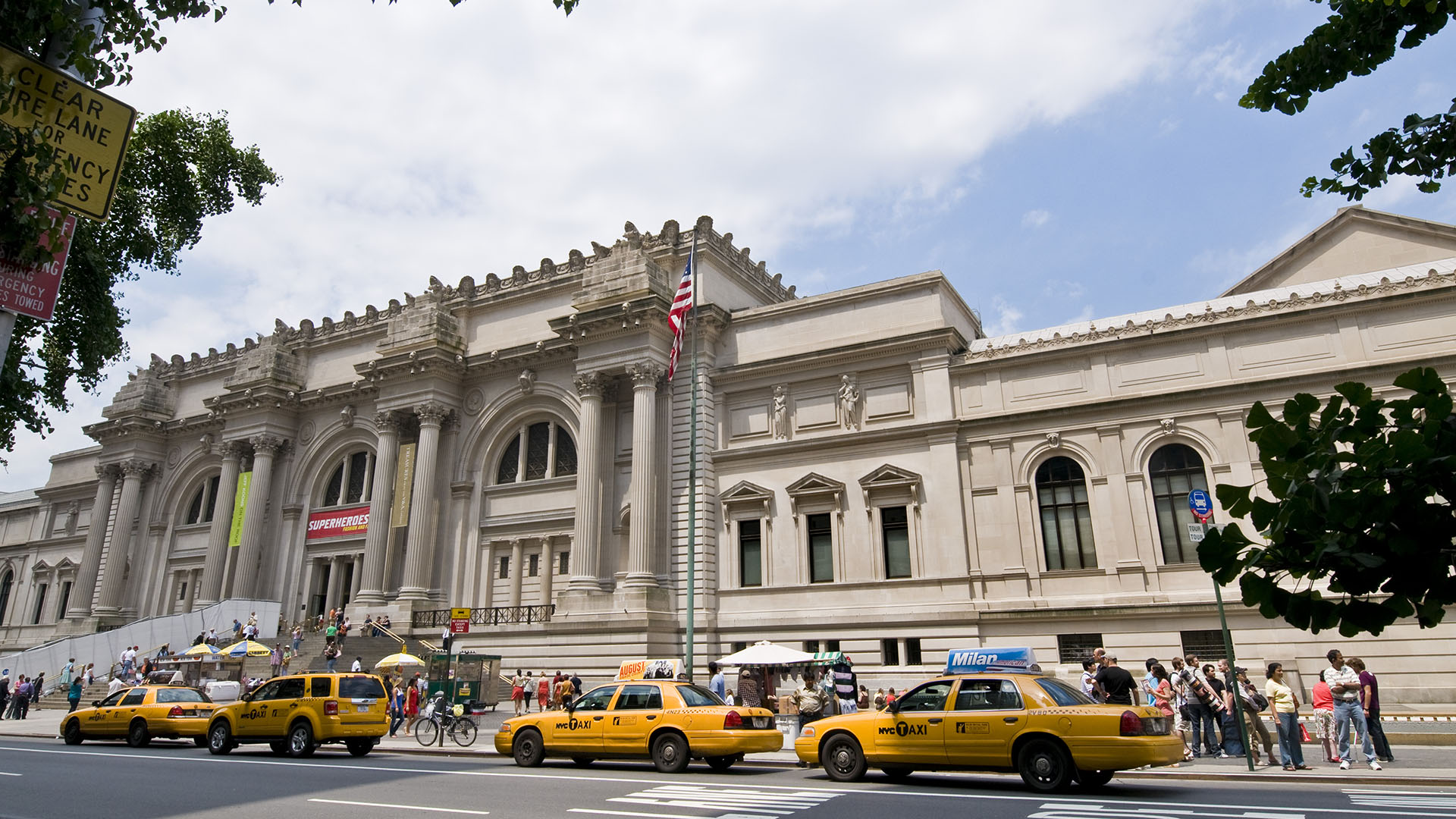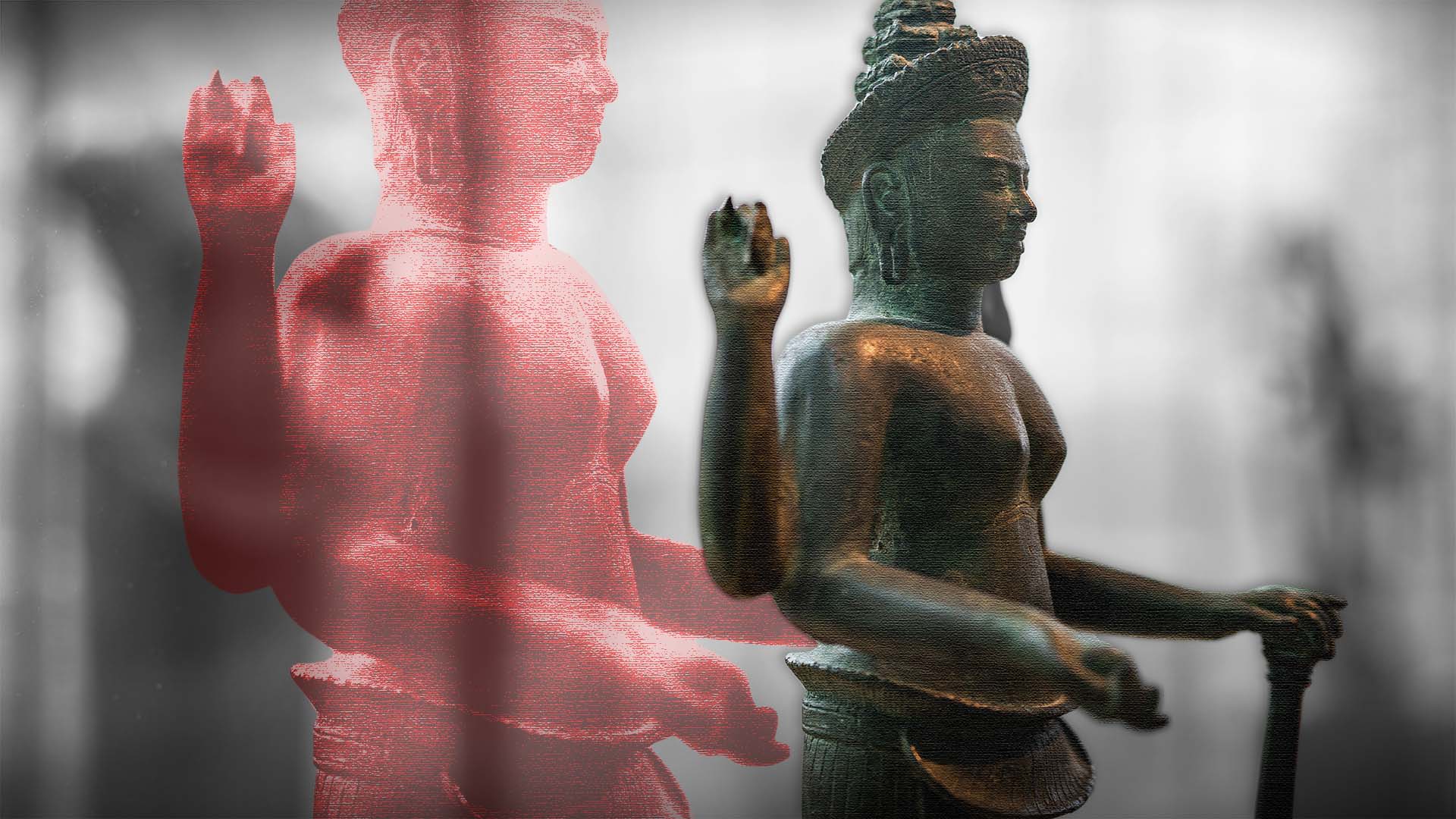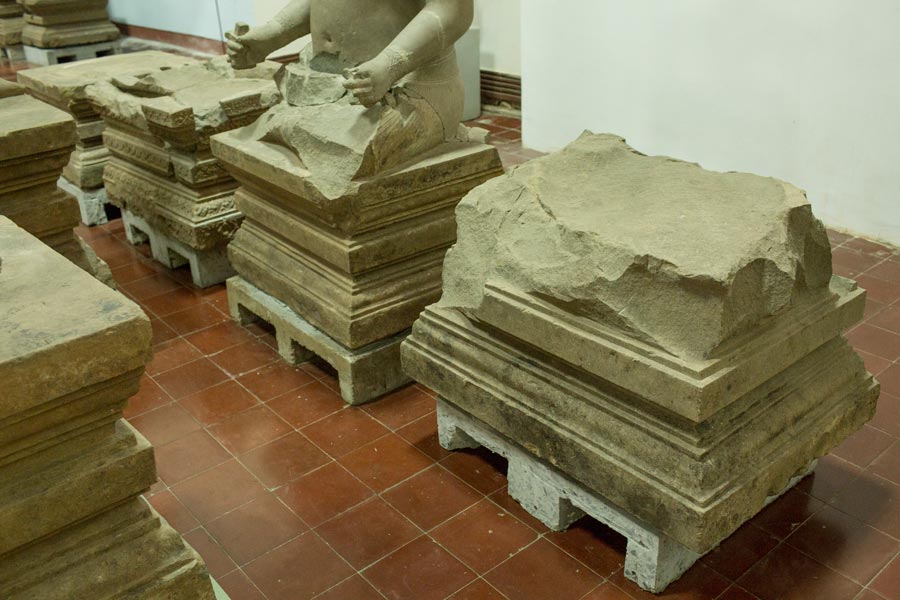IMPACT
Family of accused antiquities trafficker agrees to pay $12 million in record settlement
Douglas Latchford’s estate agreed to forfeit the money and return a 7th-century statue. Relics tied to the accused smuggler remain in museums and private collections around the world.

The estate of an accused relics trafficker has agreed to pay $12 million and return a 7th-century bronze statue as part of the largest-ever forfeiture of money linked to allegedly stolen antiquities, United States prosecutors announced this week.
For decades, British-born art collector Douglas Latchford oversaw a booming business selling ancient art taken from conflict-riven Cambodia and its neighboring countries — a trade prosecutors have more recently alleged amounted to antiquities theft on a massive scale. These pieces were often shipped to the U.S., where Latchford was accused of using falsified provenance and shipping records to sell them to wealthy collectors and prominent museums, according to prosecutors.
On Thursday, federal prosecutors in Manhattan announced that Latchford’s family had agreed in a settlement to hand over $12 million allegedly derived from the sale of stolen antiquities, as well as a bronze statue of the goddess Durga that was allegedly stolen from Vietnam and then purchased by Latchford using illegal proceeds. The settlement closes a key chapter in a years-long quest to track down and recover Latchford’s allegedly stolen artifacts and the millions they generated, a process that was complicated by Latchford’s death shortly after he was indicted in 2019.
“For years, Douglas Latchford made millions from selling looted antiquities in the U.S. art market, stashing his ill-gotten gains offshore,” Damian Williams, the U.S. Attorney for the Southern District of New York, said in a statement. “This historic forfeiture action and settlement shows that we will be relentless in following the money wherever it leads to fight the illicit trade in cultural patrimony.”
This historic forfeiture action and settlement shows that we will be relentless in following the money wherever it leads to fight the illicit trade in cultural patrimony.
— Damian Williams, the U.S. Attorney for the Southern District of New York
The settlement states that $12 million will come from offshore accounts that Latchford held with wealth management firm Rathbones in the tax haven island of Jersey — accounts that were exposed as part of ICIJ’s 2021 Pandora Papers investigation into the indicted dealer.
ICIJ’s reporting also revealed a number of leading museums that continued to hold Latchford-linked pieces in their collections. Since then, major collectors and museums around the world have returned relics to their home countries in Southeast Asia.
“What we learned through the Pandora Papers investigation is the magnitude of Latchford’s wealth,” art historian Angela Chiu told The Washington Post.
“[This] is a landmark forfeiture. It’s a signal that U.S. authorities are sending. They’re not just going to seize the artworks. They’re going after the ill-gotten gains these smugglers have made.”
The settlement, which does not constitute an admission of liability or guilt, was made with Latchford’s daughter, Julia Copleston. Copleston has denied any wrongdoing. The settlement is subject to review by a federal judge.
While the settlement may mark an end to prosecutors’ pursuit of Latchford’s estate, museums and wealthy collectors still hold Latchford-linked relics that Cambodia wants back. In late 2021, New York’s Metropolitan Museum of Art met with federal prosecutors in New York to discuss parts of its Latchford-linked holdings. The museum continues to hold artifacts once owned by Latchford.
The Latchford pieces are part of a larger reckoning for the Met and for other top museums around the world, grappling with the problematic pathways that some invaluable relics have taken en route to their collections. The Met recently announced the creation of a new four-person team of provenance investigators that will work alongside curators, conservators and other researchers to expand efforts to examine its vast catalog.
Privately-held collections are also coming under scrutiny. Last year, ICIJ reported on allegedly stolen Cambodian antiquities in the collection of the billionaire Lindemann family, which has ties to Latchford.


